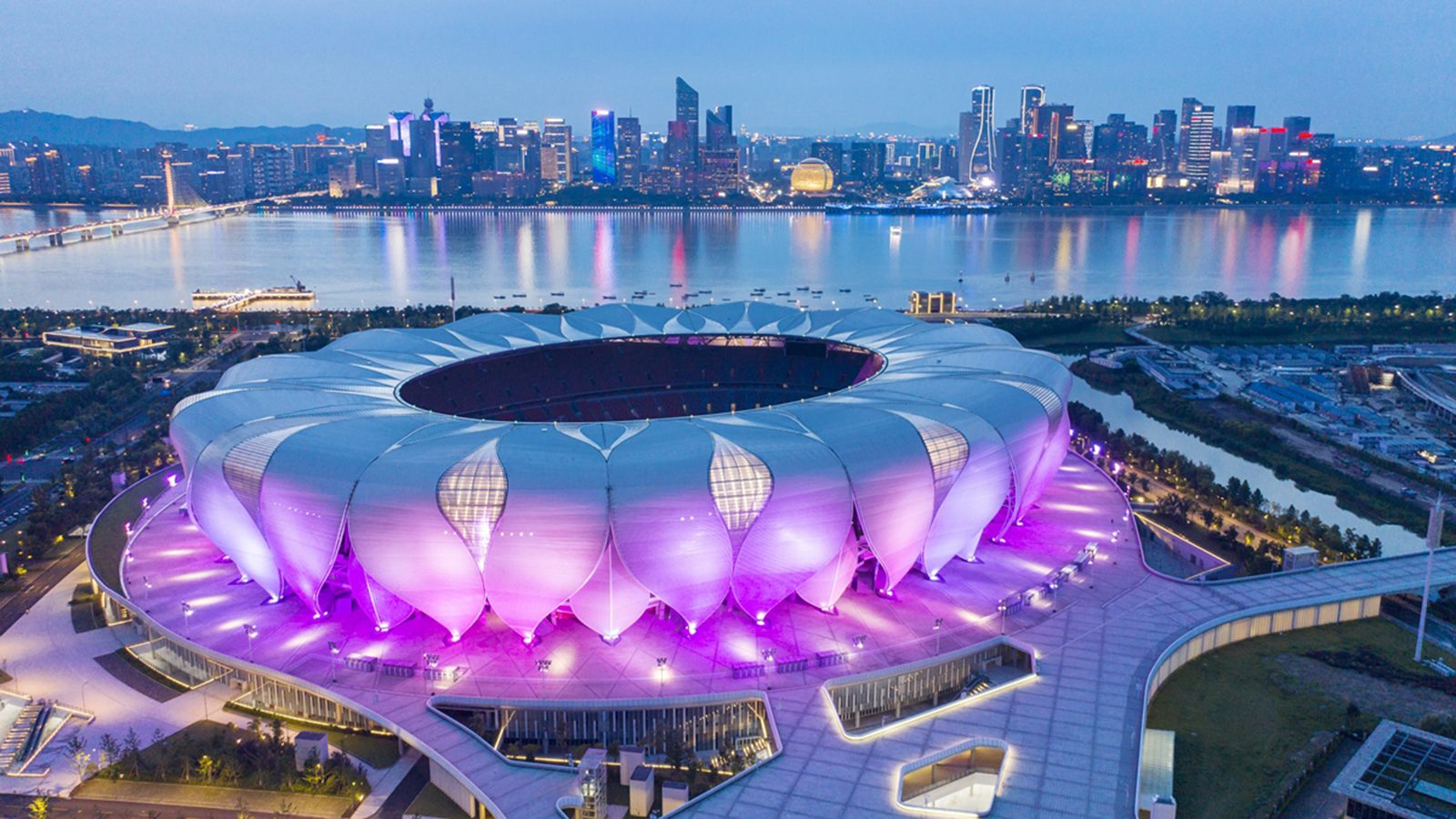In a surprising turn of events at the Hangzhou Asian Games, China has dropped the live broadcast of certain esports matchups, leaving a cloud of uncertainty hanging over the thriving billion-dollar world of professional video gaming. This unexpected move has raised questions and concerns among esports enthusiasts and industry observers alike.
Chinese video platforms, including Tencent Holdings Ltd. and Huya Inc., have been instructed to limit their live streams to only the semifinals and finals of multiplayer games like Honor of Kings and League of Legends. The decision appears to be driven, at least in part, by concerns surrounding internet addiction, according to insiders familiar with the matter who have requested anonymity to discuss private affairs.
This abrupt change in broadcasting plans has caused confusion among China’s massive esports fanbase, consisting of over 400 million dedicated followers. Initially excited to tune in to the live programming on Sunday, fans were greeted with a scheduled program notice on Huya, one of China’s premier Twitch-style services, supported by Tencent. The notice indicated that there would be no live feeds for the group-stage and quarterfinal esports competitions, leaving fans without a clear explanation.
Even on Tencent’s streaming platform, users were left in the dark, wondering why they couldn’t access video footage, including replays, of the Day 1 matches. Comments expressing frustration and confusion flooded the platform, but many of these comments were later deleted, as observed by Bloomberg News.
While the esports community sought answers, both Tencent and Huya remained tight-lipped. Requests for comments directed at Tencent spokespersons went unanswered, and a representative from Huya declined to provide any official statement on the matter.
As is customary with major sporting events, the broadcasting rights for the Asian Games in mainland China are held by the state broadcaster, CCTV, which subsequently distributes them to other platforms. This arrangement is typically followed to ensure widespread coverage and accessibility to the games.
Fortunately, on Monday afternoon, the much-anticipated Honor of Kings semifinal match between China and Thailand was broadcast as scheduled on various platforms, including CCTV, Huya, and Tencent.
The significance of this year’s Asian Games lies in its recognition of competitive video games as official medal events for the first time. Tencent, a major player in the global gaming industry, has a hand in publishing or developing four of the seven competitive video games featured in Hangzhou.
For Beijing, hosting the Hangzhou Asian Games represents an opportunity to regain some international prestige following the disruptions caused by the Covid-19 pandemic. In their approach to gaming and esports, Chinese regulators draw a clear distinction. While they have implemented strict measures against the gaming industry in recent years, citing concerns about youth addiction and problematic content, competitive gaming is viewed as a legitimate sport. Cities such as Shanghai and Shenzhen are actively competing to establish themselves as global esports hubs, further highlighting the importance of esports in China’s broader strategy.
As the controversy surrounding the broadcast of esports at the Hangzhou Asian Games continues to unfold, it raises important questions about the future of esports in China and its standing on the global stage.
FAQs (Frequently Asked Questions)
Why did China drop the live broadcast of some esports matchups at the Hangzhou Asian Games?
China made this decision, at least in part, due to concerns regarding internet addiction among young people.
Which video platforms were affected by this decision?
Chinese video platforms like Tencent Holdings Ltd. and Huya Inc. were instructed to stream only the semifinals and finals of multiplayer games.
How did China’s esports fans react to the last-minute notice of the broadcast changes?
China’s 400 million esports fans were confused and disappointed by the sudden change, as they had initially anticipated watching the live programming.
What explanation was provided for the removal of live feeds for group-stage and quarterfinal esports competitions?
Initially, no official reason was given for this decision, leaving fans without a clear explanation.
Were users able to find video footage and replays of the Day 1 matches on Tencent’s streaming site?
Users expressed frustration when they couldn’t find video footage, including replays, of the Day 1 matches, and some comments discussing the issue were later deleted.
Did Tencent and Huya provide any official comments or statements in response to the controversy?
Tencent spokespersons did not respond to requests for comment, and a representative from Huya declined to provide any official statement.
Who holds the broadcasting rights for the Asian Games in mainland China?
The broadcasting rights for the Asian Games in mainland China are held by the state broadcaster, CCTV, which then distributes them to other platforms.
Why is this year’s Asian Games significant for competitive video games?
This year’s Asian Games marks the first time that competitive video games are recognized as official medal events, highlighting their growing importance in the world of sports.
What is the distinction made by Chinese regulators between video games and esports?
Chinese regulators differentiate between video games, which have faced stricter regulations due to concerns about youth addiction and content, and esports, which are seen as legitimate sports.
Why is hosting the Hangzhou Asian Games important for Beijing?
Hosting the Hangzhou Asian Games allows Beijing to regain international prestige after the Covid-19 pandemic disruptions and emphasizes the city’s commitment to the gaming and esports industry.




